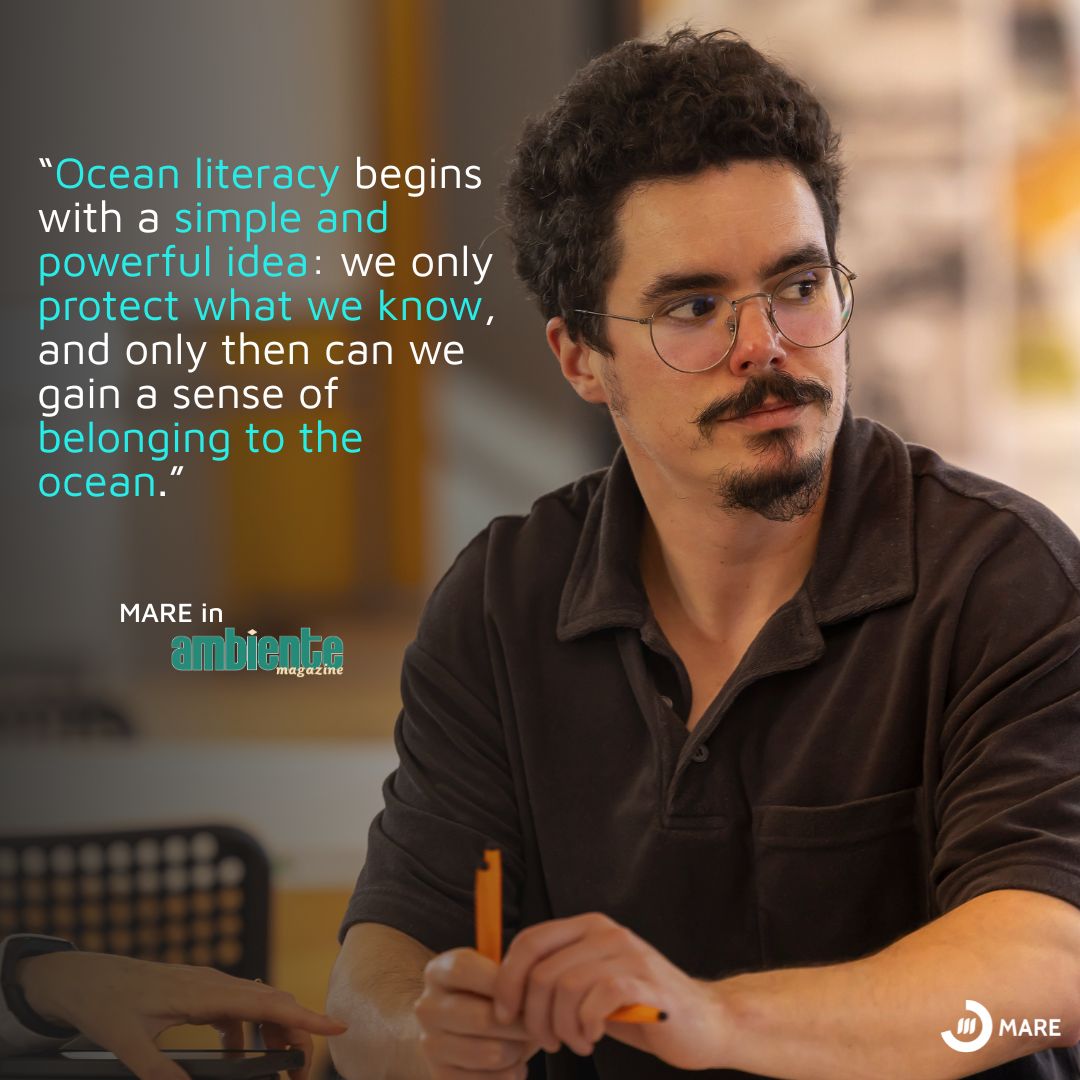João Pequeno in Ambiente Magazine – Ocean literacy begins with a simple and powerful idea
Researcher João Pequeno recently published an opinion piece in Ambiente magazine, in which he highlights the urgent need to improve ocean literacy in Portugal as a strategic pillar for the country's environmental, social, and economic sustainability. 
This reflection stems from a clear observation: Portugal, a nation historically and geographically shaped by the sea, continues to reveal low levels of general knowledge about the ocean among the public. This gap seriously compromises the collective ability to address the global challenges threatening marine ecosystems—from climate change to biodiversity loss, pollution, and overexploitation of resources.
João Pequeno argues that “it is not an academic luxury, but a social cornerstone that enables lasting policies,” since it “supports innovation in the blue economy and protects the natural heritage that sustains communities.” Based on the premise that “we only protect what we know,” the article proposes a structured educational approach focused on the ocean, in order to promote citizen involvement, from schools to local communities, and calling for greater collaboration between scientists, educators, policymakers, and civil society.
The researcher also highlights the role of science in this process, advocating for the active inclusion of researchers in the production of educational content and in the design of public policies based on solid knowledge. To this end, he stresses the importance of teacher training, the cross-curricular integration of the ocean into school curricula, and the implementation of programs aimed at diverse audiences, including adults, policy makers, and economic agents.
Despite the progress made in Portugal—with initiatives such as the Escola Azul program and the Ciência Viva network—the article identifies the lack of a coordinated national strategy as one of the main obstacles to effective progress. João Pequeno points to the need for national literacy metrics, outreach campaigns, and mechanisms that involve citizens in marine governance as key elements in ensuring real and lasting impact.
The reflection ends with a clear appeal: “If we want a future in which the ocean is a source of prosperity and resilience, the challenge is also educational: to train citizens to be active in the process.” Promoting ocean literacy is therefore not only a shared responsibility but also a structural investment in the country's sustainability.
To access the article, click HERE
Text by Patrícia Carvalho
